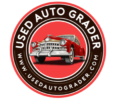Buying a used Porsche car can be a great way to get a high-performance vehicle at a fraction of the cost of a new one. However, it’s important to be aware of the potential pitfalls when buying a used Porsche. Here are some tips to help you make the right decision.
1. Research the Model: Before you even start looking for a used Porsche, it’s important to do your research. Learn about the different models and their features so you can narrow down your search.
2. Check the Vehicle History: Before you buy a used Porsche, make sure you get a vehicle history report. This will tell you if the car has been in any accidents, has had any major repairs, or has any other issues that could affect its performance.
3. Inspect the Vehicle: Once you’ve found a used Porsche you’re interested in, it’s important to inspect it thoroughly. Look for any signs of wear and tear, rust, or other damage. Also, make sure all the components are working properly.
4. Test Drive: Once you’ve inspected the vehicle, it’s time to take it for a test drive. Make sure you drive it on different roads and at different speeds to get a feel for how it handles.
5. Get a Pre-Purchase Inspection: Before you buy a used Porsche, it’s a good idea to get a pre-purchase inspection from a qualified mechanic. This will give you peace of mind that the car is in good condition and won’t have any major issues.
Buying a used Porsche can be a great way to get a high-performance vehicle at a fraction of the cost of a new one. However, it’s important to be aware of the potential pitfalls when buying a used Porsche. By following these tips, you can make sure you get the best deal and the best car for your money.
Buying a used car can be a great way to save money, but it can also be a source of stress and frustration. There are pros and cons to consider when deciding whether to buy a used car.
The Pros
The biggest advantage of buying a used car is the cost savings. Used cars can be significantly cheaper than buying a new car, allowing you to get more car for your money. Additionally, used cars tend to depreciate more slowly than new cars, meaning you can expect to get more of your money back when you eventually sell the car.
Another advantage of buying a used car is that you can often find a car with features that you wouldn’t be able to afford in a new car. For example, you may be able to find a used car with a sunroof or a navigation system that would be too expensive in a new car.
The Cons
The biggest disadvantage of buying a used car is the risk of buying a car with hidden problems. Even if the car looks good on the outside, there could be serious mechanical issues that you won’t be able to detect until after you’ve bought the car. Additionally, used cars may not come with a warranty, meaning you’ll be responsible for any repairs that need to be done.
Another potential downside of buying a used car is that you may not be able to get the exact car you want. If you’re looking for a specific make and model, you may have to settle for a different car if the one you want isn’t available.
Overall, buying a used car can be a great way to save money, but it’s important to do your research and be aware of the potential risks. If you’re willing to take the time to find a reliable used car, you can get a great deal on a car that will last you for years to come.
